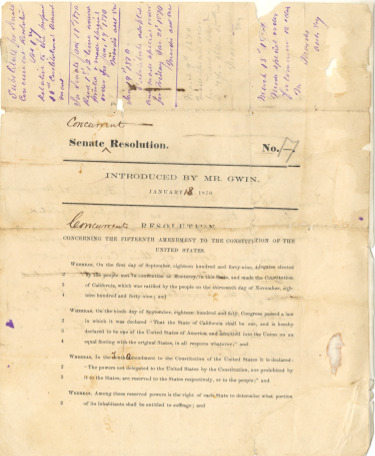In 1869 Congress sent the Fifteenth Amendment to the US Constitution to the states for ratification. Three-fourths of the states would need to approve the amendment and, since there were only thirty-seven states in the union, this meant that the approval of at least twenty-eight state legislatures would be needed. Opposition against the amendment in the California State Legislature was considerable. Senate Concurrent Resolution 17 introduced by State Senator William Gwin, Jr. declared "California was invested with the right to declare what persons should be entitled to vote within her boundaries; and...the Congress of the United States has no authority to exercise such power within her jurisdiction." Gwin's father, William Gwin, Sr., was a southern slaveowner who served as California's first United States Senator in 1850. California refused to ratify the Fifteenth Amendment.
